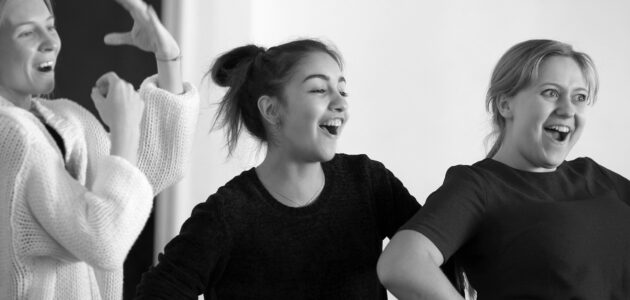
Approaching A Script
When approaching a script for the very first time what do you see? Does your imagination rapidly create a detailed world where the characters live and breath? Or, do you imagine detailed sets, lights and an audience or camera? Or, do you immediately see yourself sitting in your Hollywood mansion, smoking cubans with Channing Tatum, after playing the role to rave reviews?
There is something to be said for each of these methods of approach, but the true value of each will be revealed in a successful and cooperative combination of all three.
Let’s use Hamlet as an example.
AUDITION NOTICE: Male 20 – 30 Intense, potentially suicidal with an edge. Good looking but also smart… If possible. Think Gosling. Script attached.
Approach 1: The Real World
You are a prince whose father has been murdered by his brother (your uncle), who is now sleeping with your mother. The walls of the castle are made of real stone. The cold winds of Denmark chill you. The conversations are real. The relationships are real. You are transported from your studio apartment into another universe/time/place where the events of the play are happening as you read the lines. Real life. Real death.
Value: Approaching a script like this will ground your performance with a solid foundation of naturalism and honesty. The interactions that your character has with others will be truthful and authentic. The stakes of each scene will be appropriate to their context and as fluid as real life. The only indulgent performances will belong to indulgent characters. To be, or not to be..? won’t be intimidating because it is a genuine question asked by a real person in a time of disillusionment.
Approach 2: The Bird’s Eye
You see yourself in costume, playing a prince, that looks exactly like you. The actor opposite is playing your uncle, who has killed your father and is now sleeping with your mother, played by Robin Wright. The walls are not real and the air is climate controlled for the audience’s comfort. But you understand that you need to pretending to be cold. As you read the script, you are transported to a stage or to rehearsals where you and you fellow cast members prepare to tell one of the greatest stories ever told. You face out towards the stalls to be well lit, you raise your voice to be heard, and you don’t stab your new friends with the sword.
Value: Approaching a script in this way will keep your performance functional. The interactions you have with other actors on stage will accurately tell the story without putting anyone in danger. The audience will be invited into the story and be able to enjoy every word, expression and silence. The director won’t have to change your performance to suit an audience because you are already aware of their presence. This approach will also help you separate yourself from your character – which is often important in long running plays, if you want to maintain a personal life outside of the play.
Approach 3: The Future
You imagine yourself at curtain call, dressed in a costume, looking significantly more handsome than you really are. The other actors are giving you an extra round of applause because you absolutely smashed it tonight. Beautiful women meet you at stage door and hangovers don’t exist. Kevin Spacey comes to see your show and there just might be a part for you in House of Cards season 6…
Value: You see the potential in every audition. You are hungry for success which is infectious. Your aspirational approach forces you to work hard on improving your craft and becoming a better actor. Yes, it is dangerous to not focus on playing the part – but there is still something useful in this approach.
The successful combination of these approaches will be different for every actor depending on their natural bias. For some, focusing more on the real world of the play will prevent overacting and the feeling of needing to be something more than you are. For others, having more of a bird’s eye perspective will help with stage craft and becoming resilient to confusing direction. And then, for a small few, focusing on the future will help prevent wasting time playing roles that aren’t taking their career in the right direction.
One thing’s for sure, whatever your approach, I hope you get the part!
Unless of course, I’m auditioning too…
Chookas!

Leave a Reply